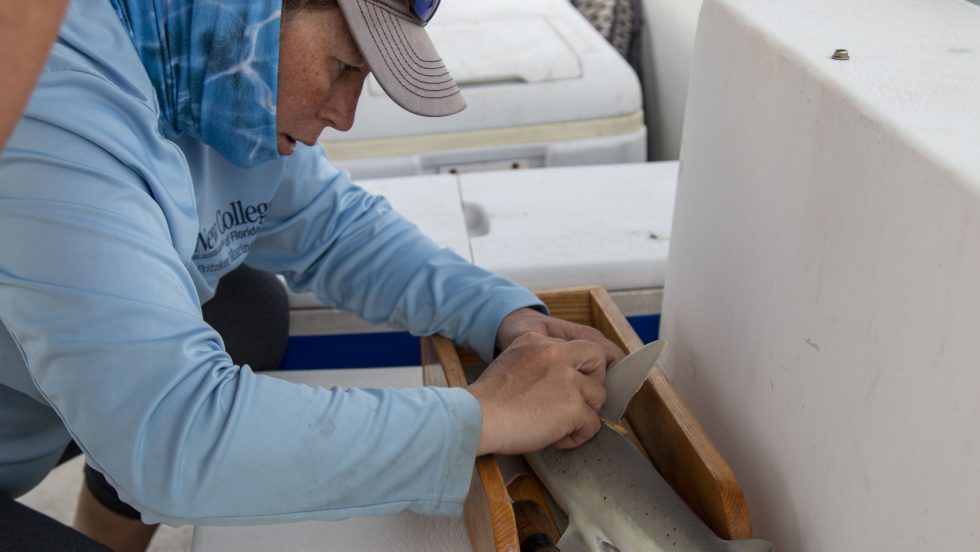Tampa Bay Estuary Program grant funds shark research at New College

The Tampa Bay Estuary Program (TBEP) and Restore America’s Estuaries (RAE) have awarded a $165,111 grant to New College to fund shark research conducted by Jayne Gardiner, Ph.D.—an associate professor of biology and the director of the Pritzker Marine Biology Research Center.
The “Status and Trends of Sharks in Tampa Bay” project will assess population trends for shark species that are not currently included in long-term monitoring efforts, addressing data gaps that hinder conservation and management efforts.
“Juvenile sharks are a critical component of a healthy Tampa Bay ecosystem, but they’ve historically been overlooked in many monitoring programs,” Gardiner said. “Young sharks of several species have been documented in lower Tampa Bay, and our research will help us better understand the bay’s potential role as a nursery ground.”
With a focus on blacktip, blacknose, bull and great hammerhead sharks in lower Tampa Bay, Gardiner will use acoustic transmitters to discover the sharks’ nursery areas and study their habitat use. The findings will help measure the impact of climate change and coastal development on the areas of the bay inhabited by these sharks.
“The effects of coastal development on sharks are poorly understood,” Gardiner said. “Dredging, removal of mangroves, filling of wetlands, and other types of permanent physical alteration of nursery habitats have detrimental effects on juvenile sharks, such as reduced growth rates and decreased survival.”
Gardiner will be joined by Havenworth Coastal Conservation President Tonya Wiley, who will lead the public outreach and education components of the project.
“I am really excited about this partnership and the opportunity to enhance diversity in conservation capacity building by providing hands-on field research training for students and early-career researchers from underrepresented groups,” Wiley said.
For more information on the project, visit estuaries.org/initiatives/tberf.
